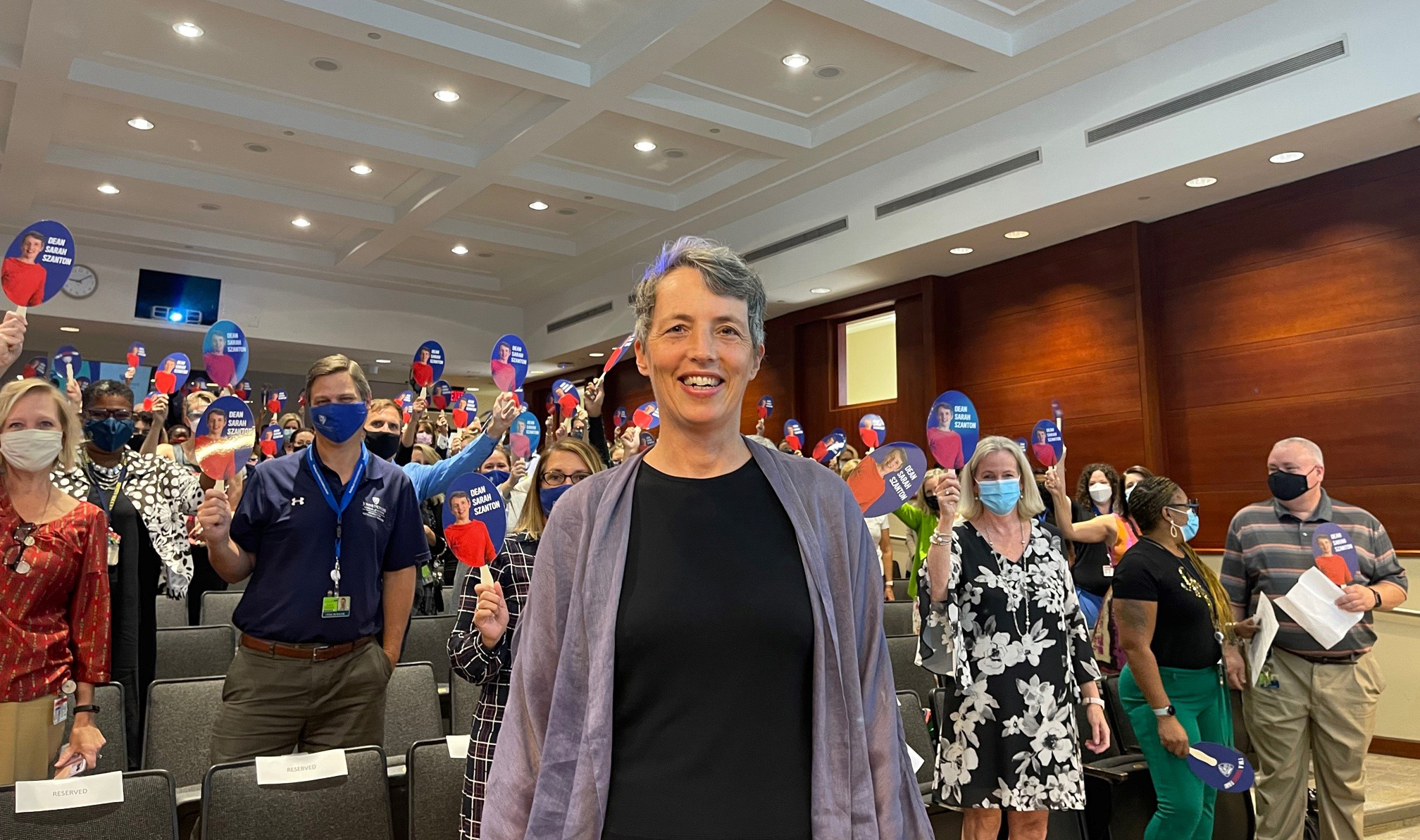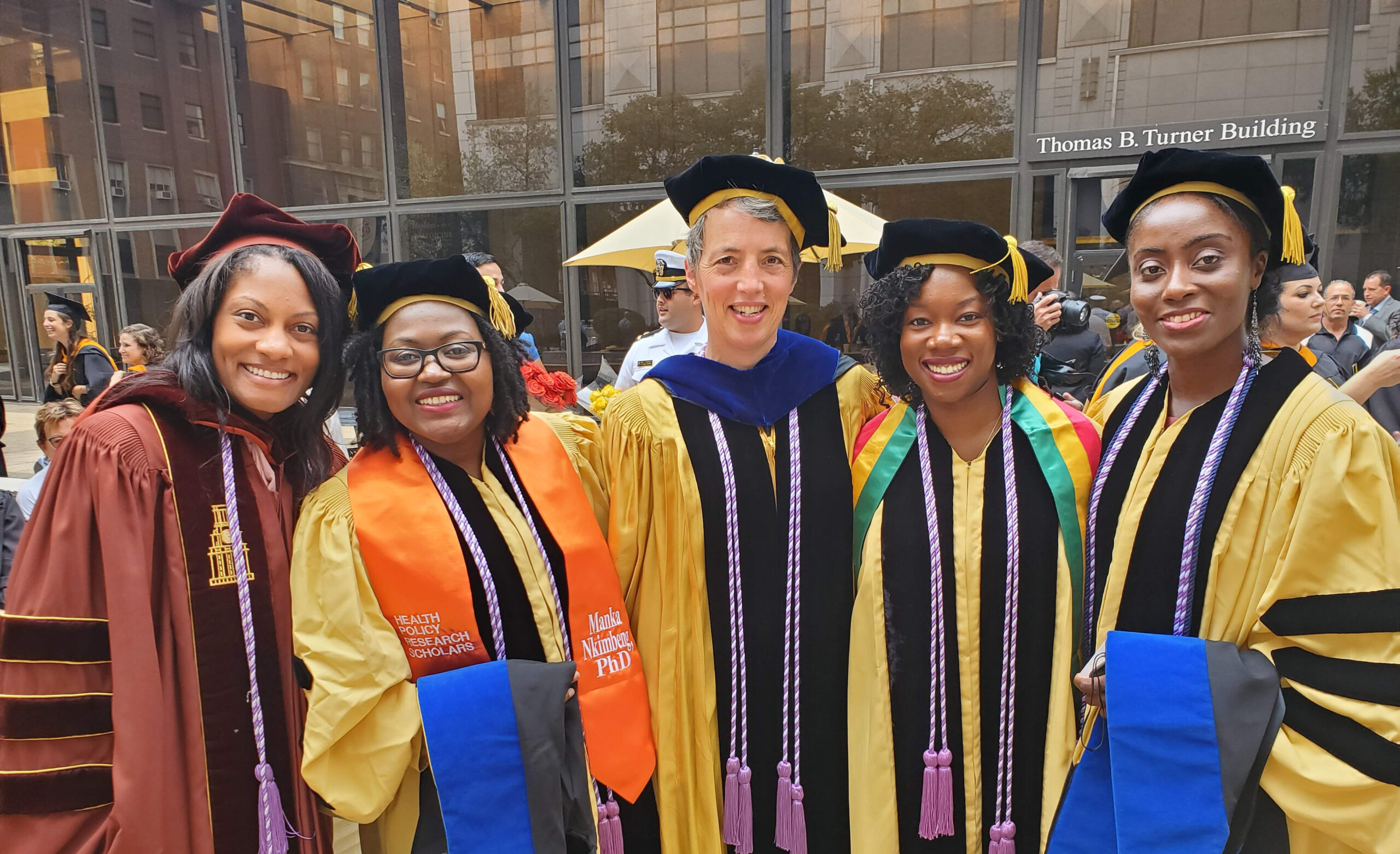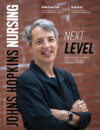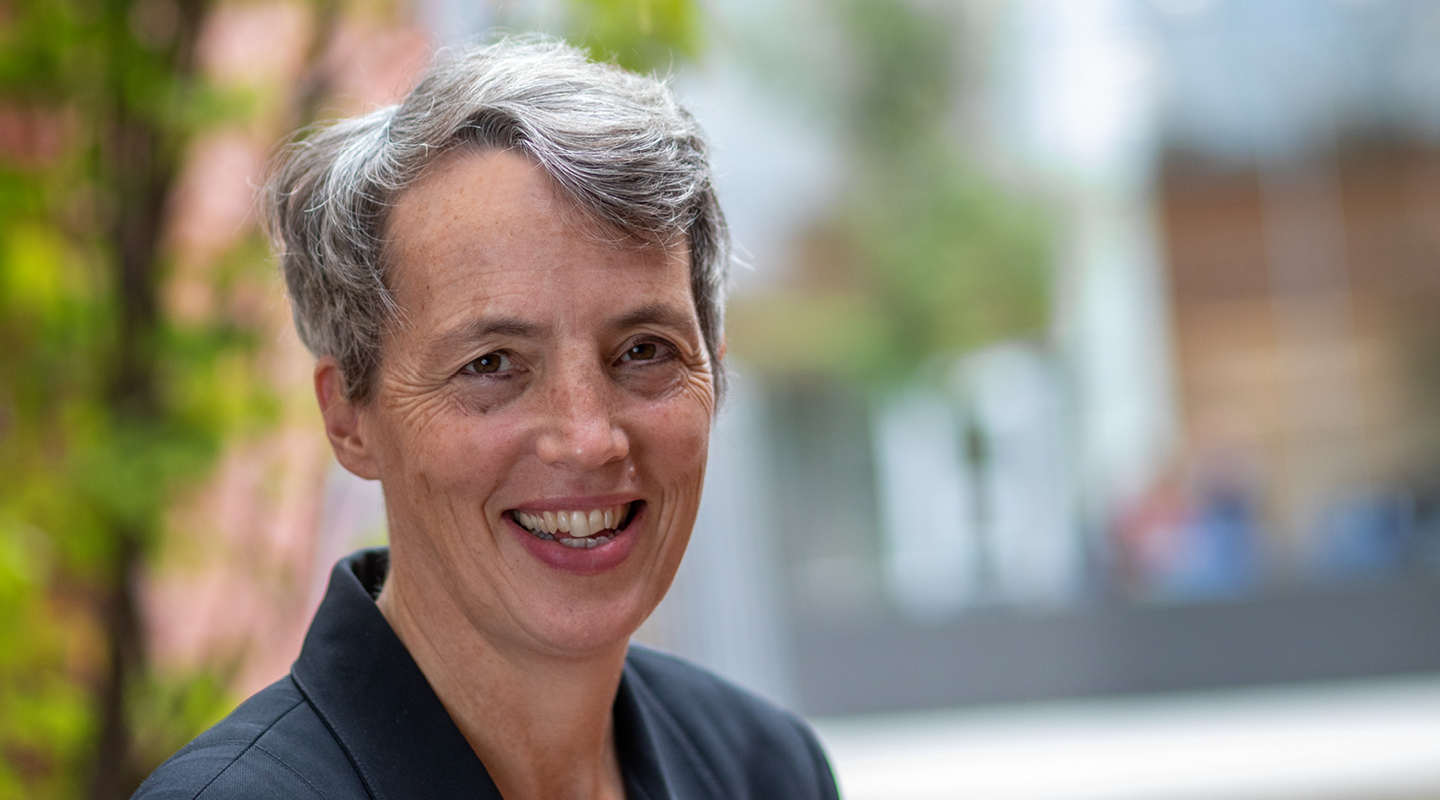Sarah Szanton takes reins as fifth dean of the Johns Hopkins School of Nursing
Sarah L. Szanton, PhD, RN, FAAN, was the perfect choice as the fifth dean of the Johns Hopkins School of Nursing.
Szanton is, after all, a nationally renowned and well-funded researcher, leader, and health equity advocate, co-developer of the game-changing CAPABLE program, and Patricia M. Davidson Health Equity and Social Justice Endowed Professor. She had directed the school’s PhD program, chaired the Doctor of Philosophy Board, and directed three academic centers concurrently, managing multimillion-dollar budgets and programming. Szanton also has a joint faculty appointment in the Department of Health Policy and Management in the Bloomberg School of Public Health.

Still, even as she introduced herself in August as their dean to wild applause and frenzied waving of “Sarah Fans” designed for the occasion, some in the Johns Hopkins School of Nursing community remained a bit stunned—in a pleasant way—that Szanton would make the choice to lead them.
What she saw, however, was a moment of potential nursing impact too important to miss.
Nursing is changing. Four in 10 nurses do not work in hospitals; they work in schools, outpatient clinics, long-term care facilities, health departments, and elsewhere. After surgery, a person will increasingly recover at home. There is a move afoot to address a nursing shortage in communities through prevention. Meanwhile, gaps in equity in health care and health policy have been further laid bare by COVID.
So nursing education, policy, and research must change as well, comfort zones be darned.
Szanton is determined that the Johns Hopkins School of Nursing (JHSON) will remain out front. Thus, becoming dean offers an increased opportunity to mentor, to encourage, to motivate, to reassure, to embolden, and if necessary to shove forward on an agenda to match the future.
It’s time to leverage our leadership and step up to change all of nursing, not just our school.”
“It’s time to leverage our leadership and step up to change all of nursing, not just our school,” she insists, and for nurses to provide care for people where and how they live.
“At the Johns Hopkins School of Nursing, we’ll focus more on what graduates are able to do rather than on the content that is taught,” Szanton says. “This provides the opportunity to advance our curriculum to what matters most in people’s lives. Health is lived every day, not just in the ICU and the ER.”

“Last winter, we charged the School of Nursing Dean Search Committee to undertake a comprehensive international search for a leader who would continue to build on the school’s preeminence in education, research, and practice among the nation’s top schools of nursing,” says a message from JHU President Ron Daniels and Provost Sunil Kumar announcing Szanton’s appointment. “Ultimately, that search led us to one of our own.”
From a young age, Szanton’s Quaker faith grounded her—eyes opened to everyday inequities built into laws, policies, and norms; heart and mind determined to challenge them.
As a Harvard-educated Capitol Hill lobbyist for reproductive health, Szanton was moved by frequent encounters with nurse practitioners advocating for their populations and inspired by the deep understanding these nurses had of the communities with which they worked. She decided to join them, adding a JHSON bachelor’s to her degree in African-American studies from Harvard, earning her RN license, and caring for migrant workers, people experiencing homelessness, and other under-resourced communities. She eventually added a master’s in nursing from the University of Maryland and returned to JHSON for her PhD, joining its faculty in 2007 as an assistant professor. Szanton was promoted to full professor in 2017 and now succeeds Patricia M. Davidson, PhD, MEd, RN, FAAN, who returned to her native Australia to become vice-chancellor at the University of Wollongong, her alma mater. (Longtime Executive Dean Marie Nolan served as the interim.)
Szanton co-developed the visionary CAPABLE program after years spent providing house calls predominately to low-income, African-American older adults in West Baltimore. The program combines handyman services with nursing and occupational therapy to improve mobility, reduce disability and depression, and decrease health care costs among seniors choosing to age safely in their own homes. CAPABLE has been researched and scaled from Baltimore City to 45 places in 23 states and continues to expand.
“I am thrilled to work with all communities of the Johns Hopkins School of Nursing to drive population health and well-being,” Szanton says. “This is a boundless time to be a nurse, and I am lucky to have the opportunity to succeed Trish Davidson in being dean of the best nursing school in the country.”

